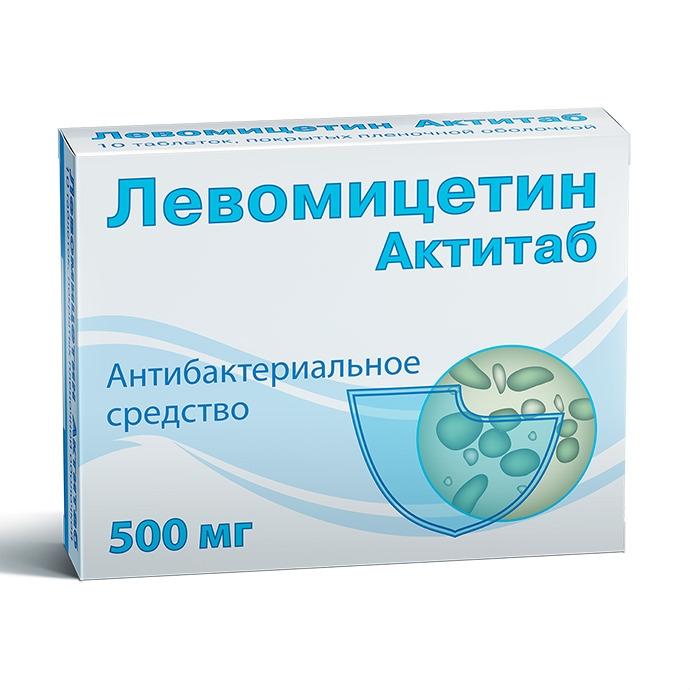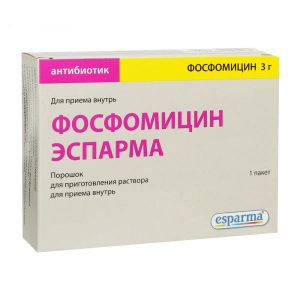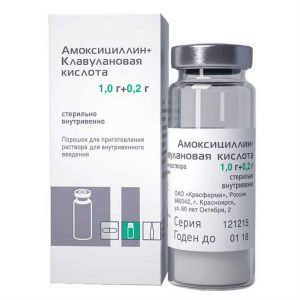Description
Release form
Tablets
Packing
10 pcs.
Pharmacological action
Chloramphenicol is a broad-spectrum antibiotic. The antimicrobial mechanism is associated with a violation of the synthesis of proteins of microorganisms. It acts bacteriostatically. Active against gram-positive (Staphylococcus spp., Streptococcus spp.) And gram-negative cocci (Neisseria gonorrhoeae, N.meningitidis), bacteria (Escherichia coli, Haemophilus influenza, Salmonella spp., Shigella spp., Klebsiella spp., Serratia spp., Yersinia spp., Proteus spp.), rickettsia, spirochete, and some large viruses. The drug is active against strains resistant to penicillin, streptomycin, sulfonamides. The resistance of microorganisms to chloramphenicol develops relatively slowly.
Indications
Infectious and inflammatory diseases caused by microorganisms susceptible to the drug: incl. brain abscess, typhoid fever, paratyphoid fever, salmonellosis (mainly generalized forms), dysentery, brucellosis, tularemia, Ku fever, meningococcal infection, rickettsioses (including typhus, trachoma, Rocky Mountain spotted fever), psitacosis lymphogranuloma, chlamydia, yersiniosis, ehrlichiosis, urinary tract infections, pneumonia, purulent peritonitis, biliary tract infections, purulent otitis media
boils, carbuncles, purulent-inflammatory skin diseases, purulent wounds, infected burns, nipple cracks in nursing women
Contraindications
– Hypersensitivity to chloramphenicol, thiamphenicol, azidamphenicol
– inhibition of bone marrow hematopoiesis,
– acute intermittent porphyria,
– glucose-related liver disease, acute liver disease eczema, fungal infections),
– pregnancy, lactation.
With caution – the period of neonatality (up to 4 weeks) and early childhood.
Special instructions
Due to its high toxicity, it is not recommended to use it unnecessarily for the treatment and prophylaxis of common infections, colds, flu, pharyngitis, and carcinogenesis.
Severe complications of the hematopoietic system, as a rule, are associated with the use of large doses (more than 4 g / day) for a long time. In the process of treatment, systematic monitoring of the peripheral blood picture is necessary.
In the fetus and newborns, the liver is not sufficiently developed to bind chloramphenicol, and the drug can accumulate in toxic concentrations and lead to the development of gray syndrome, therefore, in the first months of life, the drug is prescribed only for health reasons.
is prescribed with caution to patients previously treated with cytostatic drugs or radiation therapy.
Ingredients
Active ingredient: chloramphenicol – 500 mg
Excipients: silicon colloidal dioxide (aerosil), microcrystalline cellulose, povidone, crospovidone, calcium stearate, opadry II (series 85) [polyvinyl alcohol aluminum, molyvinyl chloride, poppy, aluminum quinoline yellow varnish, indigo carmine based aluminum varnish]
Dosage and administration of
Dose of the drug is determined by the doctor individually.
Inside (30 minutes before eating, and with the development of nausea and vomiting – 1 hour after eating, 3-4 times a day). Single dose for adults – 0.25-0.5 g, daily – 2 g / day.
In severe infections (including typhoid fever, peritonitis), in a hospital, a dose increase of up to 3-4 g / day is possible.
Children are prescribed under control the concentration of the drug in the blood serum, depending on age: premature and full-term newborns under the age of 2 weeks – 6.25 mg / kg every 6 hours for infants 2 weeks. and older – 12.5 mg / kg every 6 hours or 25 mg / kg every 12 hours,
for severe infections (bacteremia, meningitis) – up to 75-100 mg / kg / day. The average duration of treatment is 8-10 days.
Side effects of the digestive system: dyspepsia, nausea, vomiting (the likelihood of developing decreases after 1 hour after eating), diarrhea, irritation of the mucous membrane of the oral cavity and pharynx, dermatitis (including perianal dermatitis – with rectal application) dysbiosis (suppression of normal microflora).
From the hemopoietic organs: reticulocytopenia, leukopenia, granulocytopenia, thrombocytopenia, erythrocytopenia, rarely – aplastic anemia, agranulocytosis.
From the nervous system: psychomotor disorders, depression, confusion, peripheral neuritis, optic neuritis, visual and auditory hallucinations, decreased visual and hearing acuity, headache.
Allergic reactions: skin rash, angioedema.
Other: secondary fungal infection, collapse (in children under 1 year old).
Overdose
Symptoms: gray syndrome in premature and newborns when treated with high doses (the cause of development is the accumulation of chloramphenicol, due to the immaturity of liver enzymes, and its direct toxic effect on the myocardium) – bluish-gray skin color, lowered body temperature, irregular breathing, lack of reactions, cardiovascular failure. Mortality – up to 40%. Treatment: hemosorption, symptomatic therapy.
Storage conditions
Store in a dry, dark place, out of the reach of children.
Deystvuyuschee substances
chloramphenicol
drugstore conditions
drugstore
dosage form
tablets
Indications
Konayunktivit, ZHKT infections, sepsis, Pneumonia
Obolenskoye FPP, Russia



